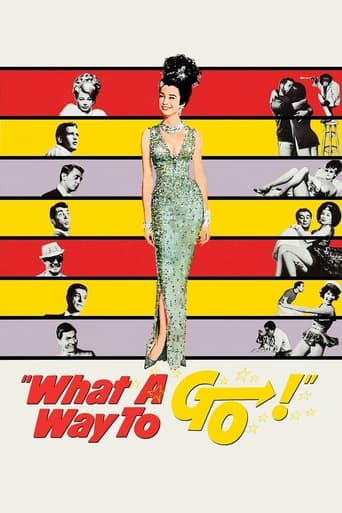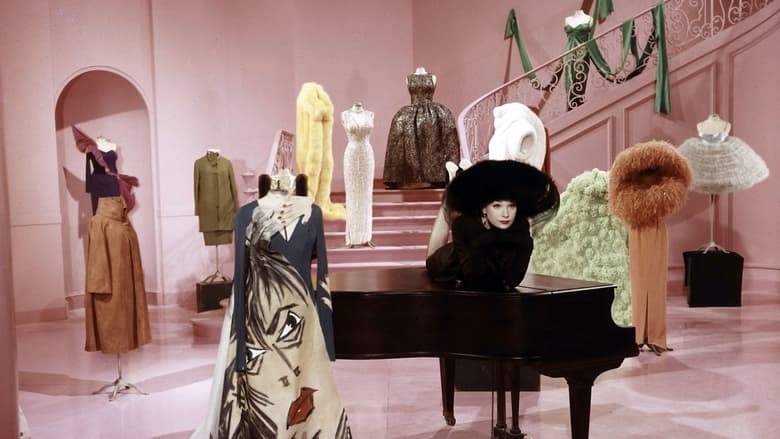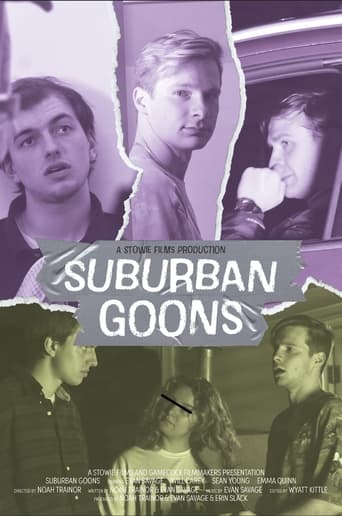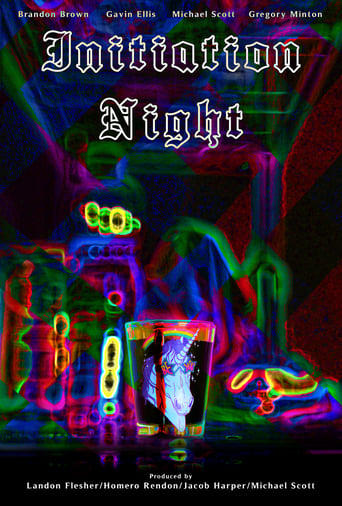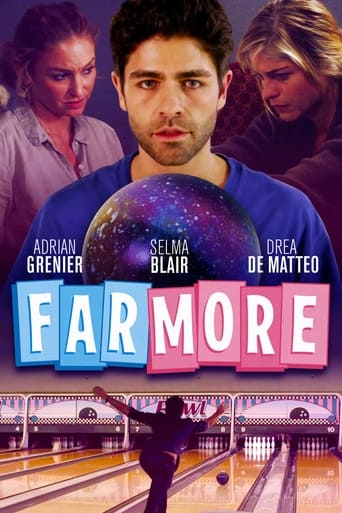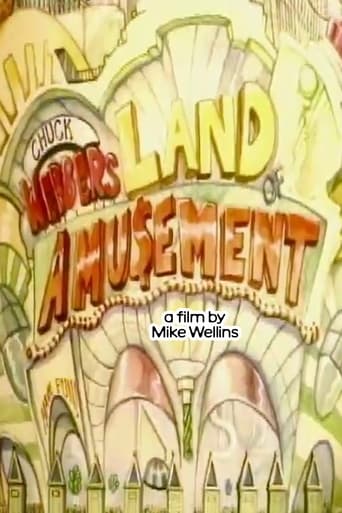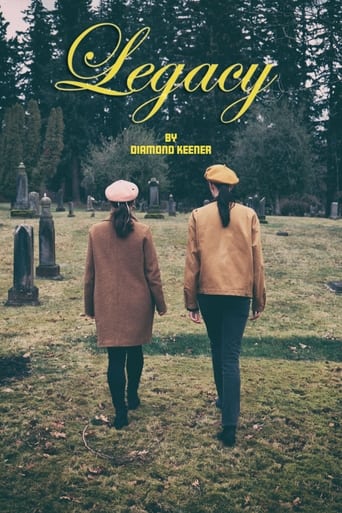What a Way to Go! (1964)
A four-time widow discusses her four marriages, in which all of her husbands became incredibly rich and died prematurely because of their drive to be rich.
Watch Trailer
Free Trial Channels
Cast


Similar titles
Reviews
People are voting emotionally.
just watch it!
A Brilliant Conflict
The story, direction, characters, and writing/dialogue is akin to taking a tranquilizer shot to the neck, but everything else was so well done.
Copyright 14 May 1964 by APJAC Productions. Released through 20th Century-Fox Film Corp. New York opening simultaneously at the Sutton and Criterion: 14 May 1964. U.S. release: 14 May 1964. U.K. release: 13 July 1964. Sydney opening at the Regent. 9,968 feet. 110 minutes.SYNOPSIS: From a little pink palace in the rich green hills of Beverly, heralded by a butler in pink livery, flanked by a staff uniformed in pink, bearing a mass of pink luggage, emerges a lovely lady clad in widow's weeds, who, after bidding farewell to a pair of Afghans, is conducted to a pink Rolls Royce and driven off. The Rolls fades into a pink plane, flying fast as the credits conclude.The lady is Louisa (Shirley MacLaine). She proceeds to the Department of Internal Revenue where she attempts to give the United States Government her not inconsiderable worldly wealth, a check for $211,568,000.79. When startled officials refuse this donation, the distressed lady consults a psychiatrist, Dr. Victor Stephanson (Bob Cummings), and tells him the strange story of her life. She is distressed because every man whose life she touches... and there have been a few... withers! She was born Louisa May Foster in Crawleyville, Ohio... She never wanted money; all she ever yearned for was the simple life, with one man to love and to love her... This idea did not coincide with those of her mother, a money-hungry gorgon who bullied Louisa's father unmercifully. Mrs. Foster is bent on Louisa marrying the town's richest man, Leonard Crawley (Dean Martin). On a date with Crawley, Louisa meets the indolent storekeeper, Edgar Hopper (Dick Van Dyke), admirer of Thoreau. After an idyllic courtship conducted by Louisa, they are married, much to the chagrin of Ma Foster and Leonard Crawley. They live happily the simple life in Edgar's shack beside the lake... until Leonard visits them and so stings Edgar that he goes to work, much to Louisa's distress. Edgar repairs to his hardware store and by use of every modern sales gimmick and dint of unremitting hard work, becomes a merchant prince, ruining Crawley in the process and becoming, as far as Louisa is concerned, unbecomingly rich.NOTES: Nominated for Academy Awards for Color Art Direction (losing to "My Fair Lady") and Color Costume Design (also losing to "My Fair Lady"). Final film appearances of Margaret Dumont and Tom Conway. The movie placed in the final five of the top thirty domestic money- makers of the year.COMMENT: An ingenious portmanteau story spoofing various film genres compensates for a lot of static dialogue. Hilarious take-offs include silent slapstick, sexy French films, LeRoy Prinz production numbers, Jeanette MacDonald and Nelson Eddy, and over-budgeted costume pictures. The overall tone is even brasher and noisier than the average American comedy, even though it is directed by an Englishman, J. Lee Thompson.With a negative cost of $5 million, all the money is right up there, crowding every corner of the vast CinemaScope screen. Unfortunately the movie proved too clever for its own good. Despite its rich settings and equally attractive cast, it failed to recover its costs at the box-office. Moviegoers alas just simply don't like to be made fun of. We don't mind laughing at the tastes of our parents (as in Comden and Green's Singin' in the Rain) but that our own passions should be mocked and ridiculed — that's something else again!ANOTHER VIEW: "What a Way to Go" is the legendary fairy godmother brought up to date. Shirley MacLaine is a Cinderella who makes poor men rich and rich men poor. Betty Comden and Adolph Green) have a good inventive script, but unfortunately they lack the ability to write interesting or witty dialogue so that the film sags badly in places. However, it is still well worth seeing for its inventive touches. I particularly like the idea of treating each episode as a type of film. This works very well in the first two, particularly the silent film take-off and the French film with its long speeches translated in skimpy subtitles, subtitles given for the most obvious ejaculations, and to crown it all when they say "To your health" in English the subtitle appears in French. I thought the Lush Budgett was a little overdone, perhaps they were unwilling to take off well- known personalities here though. I like the idea of the 20th Century film music. Finally the musical take-off of Jeanette MacDonald and Nelson Eddy. These are excellent in themselves. The trouble is they are not incorporated into the script in at all the same manner as the first two — particularly the Gene Kelly episode. It is difficult to imagine life on his houseboat as a production extravaganza a la Roy Del Ruth and LeRoy Prinz, but I liked the send up of Variety headlines such as "BENSON BOFFO BISTRO BALLADER", "BENSON CLIX STIX IN SLIX PIX".As an American comedy it might be said to be a-typical. In fact it's noisier and brasher than usual — probably because J. Lee Thompson didn't want to be criticized for giving it an English flavor. He wanted to show the boys that he could direct an American comedy with the best of them. The cast, however, does not always seem to be at home, perhaps because of some of the poor lines they are required to deliver.
That is just what you get in the lovely Shirley McLain's wardrobe alone! That isn't in just her marriage to the wonderful Robert Mitchum sequence in this delightful film.... Throughout , you really did want to know what she would be wearing next, from her marriage to Dick Vandyke to the sexy Paul Newman to the afore mentioned Robert Mitchum to the incredibly talented Gene Kelly. She was also married to a fifth husband and we all hope it was her last. Dean Martin ended up shedding his snake skins and actually turned into the man of her dreams! You gotta love this movie just for the clothes alone! I loved this film when I was a kid. I love it more now. It may be silly but it's fun! What a way to go!
This frothy thing is a charming movie (script by Comden and Green) and lots of fun. Shirley MacLaine is the strictly brought-up, naive cutie pie who manages unwittingly to marry a series of hopelessly poor men, each of whom becomes fabulously wealthy. We're talking big names too -- Dean Martin, Paul Newman, Robert Mitchum, et al -- not all of whom are associated with successful comedies.Her first love, in their dusty little town, is the hapless Dick Van Dyke who is perfectly content to spend his time fishing and reading Thoreau, while the arrogant Dean Martin lords it over Van Dyke and everyone else. MacClaine chooses to marry Van Dyke, perhaps partly because he's so abjectly mired in poverty, just to frustrate her mother who has advised her that "money is the root of all." Van Dyke suffers a road-to-Damascus experience and builts his shabby hardware store into a monstrously successful supermarket, then drops dead from the effort, leaving MacClaine a mountain of money. The pattern holds through her subsequent marriages.Well, I suppose Mitchum doesn't start out poor. He starts out fabulously wealthy, a Howard Hughes figure, distant and stern. But he warms to MacClaine, sells off his business enterprises and retires to a little farm with her. He celebrates his retirement with a few hayseed neighbors, gets a little drunk, and tries to milk the bull instead of the cow. "Melrose! FORGIVE ME!", he howls before being kicked for a field goal. He leaves her millions.In some ways the funniest and most satiric episode involves Newman as a Paris taxi driver who is an insane painter filled with contempt for bourgeois morality and greed. He lives in a shabby studio apartment in which a dozen large crane-like arms with paint brushes on the ends are activated by his "sonic palette." Newman bangs drums, operates jack hammers, and makes other random noises and the brushes slap away randomly at a large canvas. The painting are worth nothing. However, MacClaine accidentally activates the brushes by playing a record of Mendelssohn's "Spring Song." Newman has an epiphany while gawking at the brushes now oscillating in harmony. He now begins to produce machine-processed painting by playing classical music and jazz. They're no longer "his" work, although he runs around in a frenzy with a conductor's baton. The value of his paintings soars. They soar even more after the machines conspire to beat him to death. I can only think of one other movie, "The Prize", in which Newman has been in the least funny, fine dramatic actor that he is. He throws himself into the role of mad artist with amazing gusto.I guess I won't go on with this because, as must be evident, the plot has a lot of characters and is a mosaic of sub-plots. Let me add that, in some prints, in a scene in which MacClaine and Mitchum enter a ballroom in evening clothes, she does a pirouette and drops to her knees, at which point her bodice slips a little, but just enough. I only add that for the pre-verts among us. There was no joy in it for me. I've never had an impure thought.
I wondered when it would happen. When I was in my twenties I would occasionally get to see silent films. With the exception of Chaplin, almost all of them were difficult to watch. Acting styles were florid and the stories were mirroring (more than the film producers could know) late 19th Century and the first quarter of the 20th Century's societal 'ideas'. I don't know of any of them (except Chaplin) that ever reached me emotionally or in a thoughtful fashion.Friends and me who had the same reaction would fancifully say, "Gee, someday our films will appear to be as dated as those same silents.With 'What A Way To Go', seen in the perspective of my 21st Century eyes, that time has come. The so-called comedy of it, not subtle in the least and broad/broad/broad is painful to watch. But it's the falseness of as much of the film as I could bear that has the deepest impact, just like those silent films. There's a 'kidding', a winking at the audience that takes what's supposed to be true sentiment and turns it inside out. (Voltaire could do this but the screenwriters of this are not operating at his talent level.) So ultimately, nothing is satirized and everything becomes pap.

